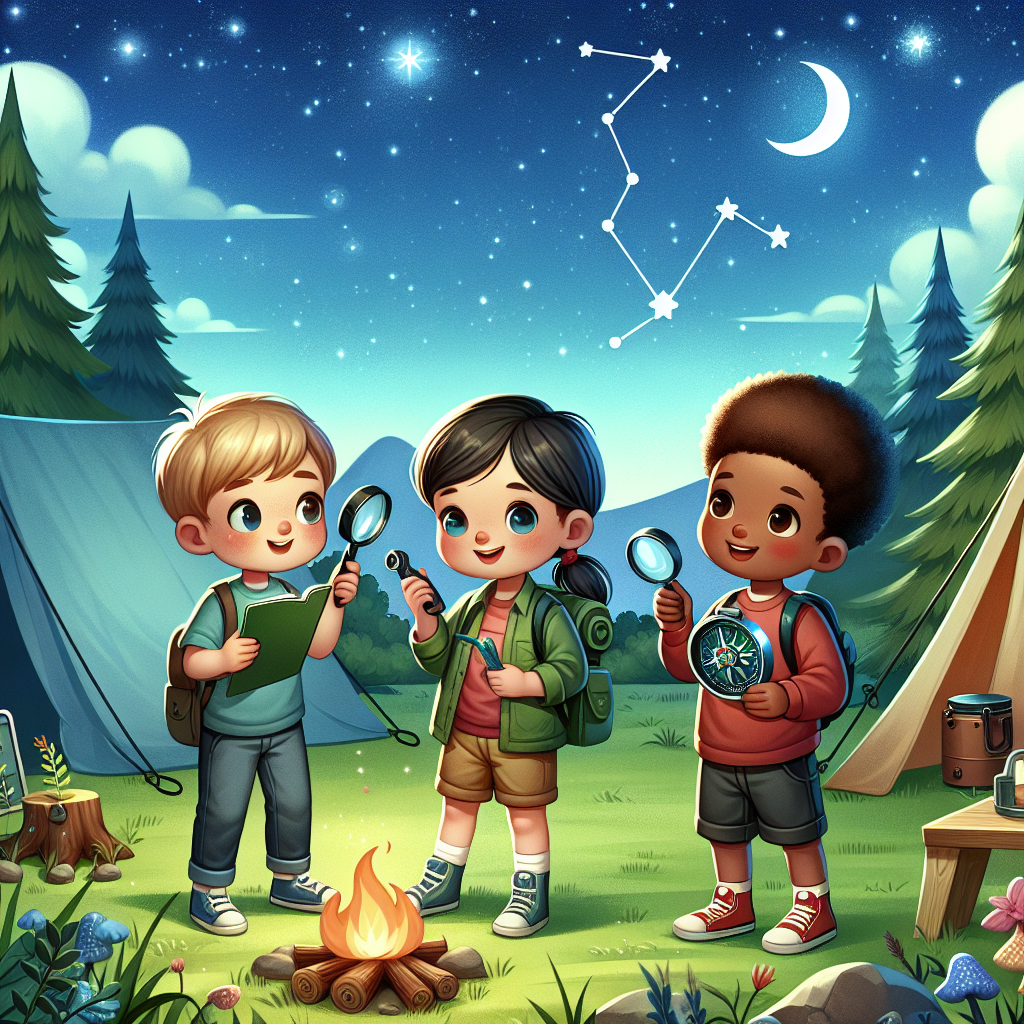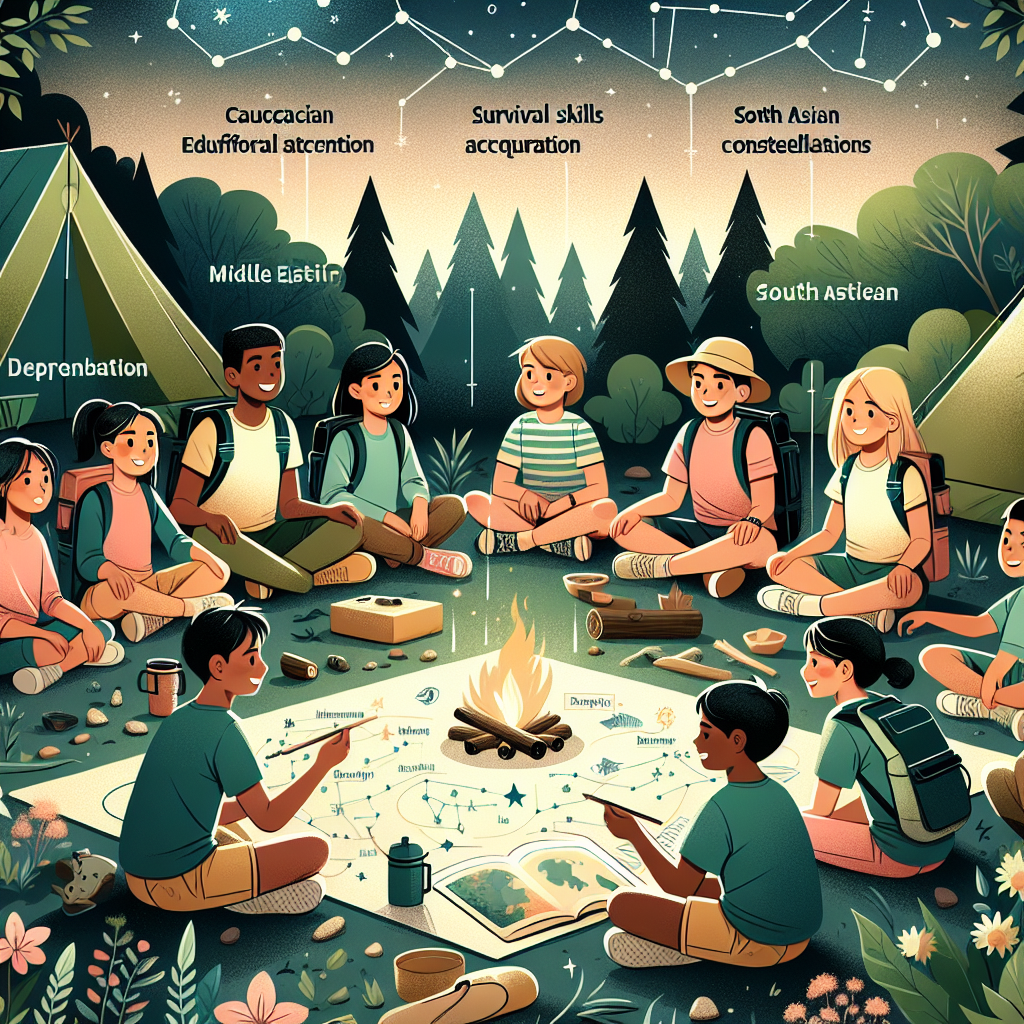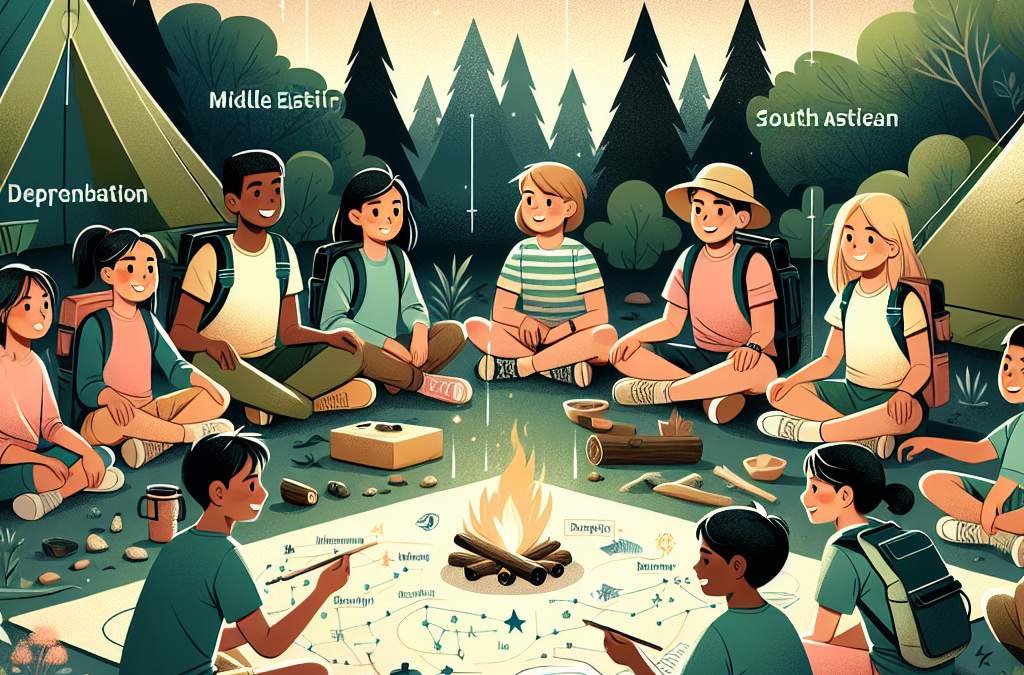Embark on a journey into the outdoors with TrailTrekTribe’s comprehensive guide on making your camping trips both fun and educational for the kids. Balancing the beguiling surroundings of nature and the thrill of outdoor adventures, with an underpinning layer of learning, will not only spark your children’s enthusiasm for the great outdoors, but also stimulate their intellect in the most practical, hands-on way possible. As a tribe brought together by the shared love for nature, spearheaded by our founder Noah Parker, we aim to instill this passion into youngsters, ensuring that each adventure is packed with intriguing teachable moments. Explore this enthralling guide to foster an enriching environment for the kids, where adventure intertwines with knowledge in the wildest classrooms on earth – the outdoors.
Understanding the Importance of Outdoor Learning
With digital consumption becoming a staple in children’s lives, getting them outdoors can rejuvenate their minds and present new avenues of learning. Engaging in outdoor activities allows kids to connect with nature and learn skills that are seldom taught within the confines of a traditional classroom. These experiences can evoke a sense of curiosity, creativity and self-sufficiency in youngsters.
Benefits of outdoor learning for kids
Outdoor learning carries numerous benefits for children. It supports their physical health by keeping them active, it stimulates their curiosity about the world around them and improves their problem-solving skills as they navigate through different terrains and situations. Additionally, interacting with nature can have a positive effect on kids’ emotional health, teaching them to respect their surroundings and promoting overall well-being.
Role of camping in child development
Camping plays an essential role in child development. It allows kids to immerse themselves in new, exciting environments and enables spatial awareness, resilience, social interactions, and independence. Camping is effectively an experiential learning opportunity where kids acquire and apply knowledge in a natural setting.
Developing an appreciation for nature in children
Instilling an appreciation for nature in children’s hearts and minds at an early age is crucial. Promoting respect for flora and fauna, emphasizing the beauty of natural landscapes, and highlighting the importance of maintaining the environment can each contribute to a child’s understanding and love of nature.
Pre-Camping Preparation and Planning
A successful camping trip depends on good planning and preparation, and it’s a good idea to include the kids in this process.
Choosing an educational camping site
When choosing a camping site, consider what kind of learning opportunities the location might present. Areas rich in biodiversity, for example, can offer lessons in local flora and fauna. Historical sites might provide a chance to learn about cultural or indigenous history.
Planning an itinerary with learning activities
Keep your itinerary flexible but packed with engaging activities that will keep your kids learning and entertained. This could be a nature scavenger hunt, bird watching, star gazing, or even simple art and craft projects.
Involve kids in preparing for the camping trip
Involving kids in the preparation process can teach them valuable planning skills. Allow them to assist in packing supplies or planning meals. It’s a great way to make them feel important and responsible for the camping trip.

Educating Kids about Camping Gear and Equipment
Understanding camping gear and equipment is crucial for an enjoyable camping experience.
Teach kids how to pack camping gear
Starting from packing a backpack properly to knowing what to bring, teaching your kids about camping gear is crucial. Explain why each item is necessary and which situations they might need to use them in.
Understanding the use of different camping tools
Each camping tool has a specific purpose, and understanding their usage is an important part of camping. From a simple compass to a multipurpose Swiss knife, let your child understand the function and handling of each tool.
Safety guidelines for using camping equipment
Safety is paramount when it comes to using camping gear. Teach your kids base rules like not playing near the campfire and handling knives or other sharp tools with care. Proper guidance in these areas is crucial.
Educational Nature Walks and Hikes
A camping trip is never complete without a nature walk or a hike.
Organizing nature scavenger hunts
You can prepare interesting hunts for kids to explore nature, like identifying specific leaves or insects. This fun activity can help children learn about the biodiversity around them while playing.
Bird watching and animal tracking activities
Guide your children to observe birds and animals in their natural habitats. Teach them to identify different species and their behaviors.
Teaching about local flora and fauna
While walking or hiking, provide information about the local flora and fauna. It’s a wonderful opportunity for kids to learn about different types of plants, trees, and animals in the area.

Teaching Survival Skills
Basic survival skills are integral to camping trips and are rewarding to learn.
Basics of setting up a campsite
Teach your child how to choose a safe site for camping, how to set up a tent, and how to organize their sleeping and cooking areas.
Teaching how to start a fire safely
Starting a fire is a fundamental survival skill. Show your kids how to gather dry leaves or twigs and safely start and put out a fire.
Understanding weather conditions and navigation skills
Teaching kids about forecasting weather and equipping them with basic navigation skills not only builds their confidence but also ensures their safety.
Stargazing and Astronomy
Camping trips provide a great opportunity for stargazing and astronomy lessons.
Introduction to constellations and planets
You can introduce the fascinating world of constellations, planets and other celestial bodies to your kids during a clear night.
Using astronomy apps for a better experience
Use astronomy apps to help identify these celestial bodies and constellations, enriching the stargazing experience and making it educational.
Teaching the basics of navigation using stars
Teaching kids how to navigate using celestial bodies is an interesting and practical skill to learn. This fun activity can spark a love for astronomy.
Creating Learning Experiences through Campfire Stories
Campfire stories can be a captivating way to dip into history, culture, and the natural world.
Sharing information about Indigenous cultures and history
Sharing stories about the native tribes, their culture, and history can educate kids about indigenous heritage and the significance of preserving it.
Stories about wildlife and natural history
Telling stories about the wildlife that inhabits the area and their unique characteristics can be fun and engaging. Not to mention, it’s an excellent opportunity to impart knowledge about local ecology and biodiversity.
Encouraging kids to share their stories
Encouraging your kids to share their own stories, experiences, or things they learned during the day can enhance their communication skills and foster creativity.
Fostering Artistic Expression in Outdoor Setting
Expressing creativity in harmony with nature can be fun and therapeutic for kids.
Nature-inspired art and craft activities
Nature can inspire various art and craft activities. Leaf rubbing, rock painting, or creating art from found natural objects can be highly engaging.
Encouraging photography and nature journaling
Supplying your kids with a basic digital camera or a nature journal can spark their creativity. Photography can encourage them to observe the environment closely, while journaling can enhance their observation and writing skills.
Campfire songs and performances
Encouraging performances around the campfire, such as songs, skits or dances, can boost kids’ confidence and provide fun and entertainment during camping nights.
Promoting Physical Health and Fitness
Outdoor activities promote physical health and educate kids about maintaining their personal hygiene and eating habits.
Outdoor exercises and games
Incorporating exercises or games like frisbee, tug of war, obstacle courses, or races into your camping itinerary can keep the kids physically active and engaged.
Healthy food preparation and eating habits
Teaching kids about preparing and cooking healthy meals outdoors can improve their culinary skills and understanding of nutrition.
Hygiene practices in the wilderness
Regardless of where you set up camp, cleanliness is important. Teaching kids about proper health and hygiene during camping—like handling food safely, keeping the campsite clean, and personal hygiene—is essential.
Instilling Respect for Nature and Sustainability Practices
Fostering a sense of responsibility for maintaining the environment is an important lesson for children.
Litter-free camping awareness
Educate kids about the effects of littering, emphasizing that every piece of trash needs to be discarded properly when out in nature.
Leave No Trace principles
The ‘Leave No Trace’ principles should be integral to any camping trip. Instilling these ethics promotes respect and responsibility towards the environment.
Wildlife safety and camping ethics
Kids must learn to enjoy wildlife at a distance, and never to feed animals, knowing that they could harm them. This can further teach kids about respecting and preserving nature.
In conclusion, camping offers an array of educational opportunities that can enhance your child’s understanding and appreciation of the natural world. By planning ahead, involving kids in the preparation process, and incorporating educational activities throughout the trip, you can create an unforgettable and enriching experience for your children. At TrailTrekTribe, we aim to inspire, guide, and fuel your outdoor adventures. So pack up your gear, bring the kids along, and make some memories you all will cherish for a lifetime.

